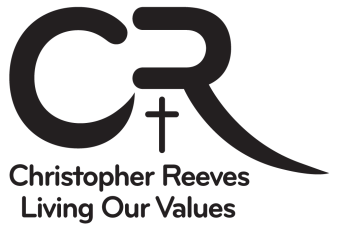Reading Strategy
Reading is at the heart of all we do at Christopher Reeves Primary School. We believe that reading is one of the best tools we can give to our children in order to shape them into independent, imaginative and life-long learners. Children need to be able to read so that they are successful in all areas of the curriculum and at Christopher Reeves Primary School we teach reading, both explicitly and through our wider curriculum and we ask our parents/carers to support us in this.
Phonics and early reading
Synthetics and Systematic Phonics scheme used: Read Write Inc.
Read-Write Inc mission statement:
Read Write Inc. programmes work because we get children’s brain ‘COGS’ working.
Everything CONNECTS: children connect sounds with mnemonic pictures; words with their meanings; and stories with the sounds they know. They connect their own experiences to the stories they read and learn to lift the words off the page.
Children learn ONE thing at a time and practise it until it becomes second nature. Interactive practice keeps children focused, and their capacity to learn develops exponentially.
They learn at their GOLDILOCKS spot (not too easy, not too hard) with others at a similar challenge level. No time is wasted.
Children remember what they learn by SAYING it out loud to a partner. If they can’t explain it, the teacher repeats it until they can.
What’s more, our teachers are trained, so they have capacity to show love for what they do. The more they love teaching, the more the children love learning.
Our Phonic Strategy:
- All children in EYFS and Year 1 enrolled as a matter of course. Additional children from upper years enrolled alongside where their learning needs still sit within a phonic programme.
- Children take part in 5x full RWI lessons each week
- Phonic sessions start in EYFS where sounds learning builds up to allow a reading and writing programme to begin and work alongside.
- Sessions in Year 1 and 2 consist of three sections: sounds, reading and Get Writing
- Children are assessed half-termly and grouped accordingly
- Sessions are rigorous, snappy and successful for all
- All children take home books to coincide directly with their level of phonic knowledge
- Children who show a need for additional support are tutored 1:1 in addition to their daily phonics sessions. This helps to ensure all children keep up, and don’t have to catch up.
Year 2: bridging the gap
When children have worked all the way through the RWI scheme and have a secure phonic understanding, they move onto daily guided reading. These sessions support the children’s growing comprehension and continue to support decoding and the reading of high frequency words. Guided reading is underpinned by certain guiding principles, these are outlined below:
- Pupils are organised into reading attainment groups and share a set of the ‘same’ books pitched at their level with appropriate challenge.
- All pupils in the classroom will be accessing narrative, non-fiction or poetry at the same time.
- Pupils will receive a daily 30 minute guided reading session and once a week will intensively work with the class teacher.
- The sessions work best if they operate like conversations about books and ‘hands up’ is not used so there is a natural flow of talk about what they are reading.
- During these sessions the pleasure principle of reading is fostered and highly engaging picture books should be used in favour of phonic based books to heighten engagement and excitement.
- Guided reading is sharply focused on reading for meaning, listening to friends read and talking about books.
- During these sessions, pupils could be ‘reading around the group’, reading in pairs or reading to themselves and the teacher will direct them in these different organisational ways.
In addition to guided reading, the children have a reading book which they take home. This book is matched accurately to their phonic and reading ability. Once they have completed the Read Write Inc phonic programme, the children move onto Accelerated Reader.
Year 3&4: reading in lower key stage 2
Reading in year 3 and 4 is taught predominantly through five guided reading lessons and a whole class reading comprehension lesson each week. These lessons are for twenty minutes a day and include specifically taught reading skills. This time is protected so that children always have a reading lesson. The sessions are focussed on the comprehension of texts (reading for meaning) and are an opportunity for adults to listen to the children read, reinforce decoding and discuss the text. It fosters engagement and excitement about reading and enables the children to experience reading different genres and authors.
The children that are not at age related expectations are of the highest priority. For these children, additional reading intervention, where decoding and comprehension skills are reinforced, is prioritised.
All children are enrolled on the Accelerated Reader programme, where assessments are carried out termly to establish each child's individual reading level. This directs them to books that are accurately matched to their reading ability. As part of Accelerated Reader, children are quizzed on the books they read to check their comprehension.
Year 5&6: reading in upper key stage 2
In upper key stage 2, we continue to build on the foundations of reading that have been laid lower down the school. Just like in lower key stage 2, the children have guided reading lessons which include a comprehension lesson for half an hour each day when reading skills are specifically taught using the VIPERS. Once again the children that are not at age related expectations are of the highest priority and receive additional support through small group and/or 1:1 support.
All children continue to be enrolled on the Accelerated Reader programme, where assessments are carried out termly to establish each child's individual reading level. This directs them to books that are accurately matched to their reading ability. As part of Accelerated Reader, children are quizzed on the books they read to check their comprehension.
Reading for pleasure / reading at home
We expect all children to read at home at least 5 times each week. This is noted in children’s reading records (Reception, KS1 and LKS2). In each class, staff monitor the reading that has happened at home and the children receive rewards for their effort either by receiving merits or being entered into a class raffle.
During the school day, there are opportunities for the children to share books and magazines with friends, read quietly and independently and to visit the school library where they are able to choose a book. Teachers recommend books for the children to read, based on the genres and authors that the children enjoy and their interests. Time is also made available for teachers to read aloud to the children, modelling fluency, expression and intonation. The class reader is usually linked to the curriculum topic.
We challenge children to read the books from the age appropriate 50 books list which we publish on our school website. These can also be found below. The children are awarded with certificates during our celebration assemblies once they have read 10, 20, 30, 40 and 50 books. When they have achieved reading the 50 books from their year group, they are gifted a book from the next list.
Which books do children take home from school?
Reception/KS1
- If a child is engaged in the RWI system, they will be provided with a phonics-appropriate book to take home and practice reading independently to an adult.
- Once children finish the RWI system, they begin to take home Accelerated Reader books. They should be able to independently decode these books when reading to an adult at home.
- Children in Reception and KS1 also get a choice of a non-phonics book from the school library - these are the picture and non-fiction books that are greatly enjoyable and match our children’s interests. Children visit the school library once a week to change their books and enjoy reading books with their friends and families.
KS2
- For children still enrolled in RWI system, a RWI phonics-matched book will be provided.
- For all other children, Accelerated Reader books are taken home
- Children in KS2 also get a choice of a book from the school library - these are the fiction and non-fiction books that are greatly enjoyable and match our children’s interests. Children visit the school library once a week to change their books and enjoy reading books with their friends and families.
Read, Write Inc
To teach phonics, we use the Read Write Inc programme.
Useful documents and advice can be found below. Please click on the link below to access the Ruth Miskin parents' site, which has lots of useful resources and videos:

This document gives parents information about the teaching sequence for the RWI sounds. You can also find a copy of the handwriting cards we use.
Other useful RWI Information:

